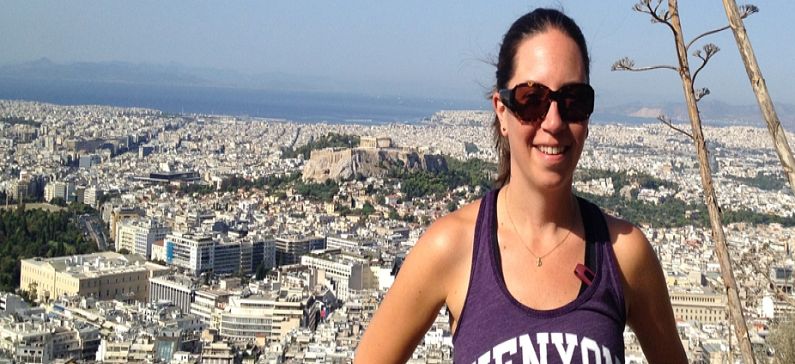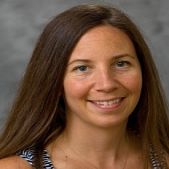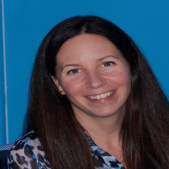
Chair of the Department of Classics at Kenyon College
Zoë Sophia Kontes is an associate classics professor in the Department of Classics at Kenyon College. She teaches surveys of both Greek and Roman archaeology, and seminars on the illicit antiquities trade, ancient cult practice and Athenian topography.
Z. Kontes is of Greek heritage on her father’s side. Her original name was Kontekakis which comes from Crete. She received her B.A. in Classics from Bowdoin College and earned a Ph.D. in Old World Archaeology and Art from Brown University in 2005.
“My Papou’s family is from Kamaria, in the Selino district in the southwest corner of Chania, Crete. My YiaYia’s family is from Agia Mama, in Laconia, near Monemvasia in the Peloponnese. These are two of the most beautiful places in the world, in my opinion! As an archaeologist, I spend a lot of time in Greece, and studying Greek culture. I have a very strong connection to both the ancient and modern worlds of Greece” she noted in her interview at ellines.com.
During her time at Brown she received the Fulbright Fellowship at the American School of Classical Studies in Athens, Greece for graduate studies. She has also worked on excavations in Cyprus, Italy and Greece.
In 2004, Z. Kontes joined Duke University as visiting assistant professor of Classical Studies for three years. She joined the faculty of Kenyon College in 2007. Her archaeology courses help students discover the sights and traditions of a distant past and along the way to learn to formulate ideas about everyday Greek and Roman life and the average person’s place in it.
In 2009 she was awarded a Teaching Fellowship from the Whiting Foundation and in 2013 the Trustee Teaching Excellence Award from Kenyon College. In 2015 she wrote for the New York Times the article “Repatriation Reinforces International Collaboration” and has also published articles on ancient numismatics. In 2016 she was awarded a Whiting Foundation Public Engagement Fellowship to create a podcast series on the illicit trade in classical antiquities. She is currently working on this project while a Consulting Scholar at the University of Pennsylvania Museum.
“I am currently working on a podcast on the illicit antiquities trade. I hope that by increasing public knowledge about this problem, we can work together to help stop looting and preserve the artifacts of Greece” she added.
Z. Kontes is also interested in music. She hosts a weekly two-hour radio-show on WKCO, Kenyon College’s student-run radio station.











